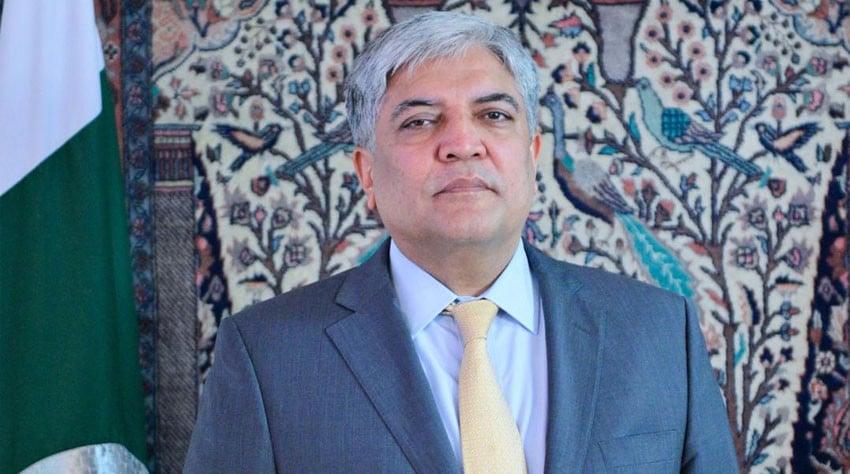ISLAMABAD:
After days of speculation suggesting that Pakistan might have captured or considered retaking the strategic Wakhan Corridor, Pakistan finally broke its silence on Thursday and rejected all such reports.
“Wakhan Corridor, what I can say is that I have seen these endless speculations. Wakhan is part of Afghan territory. Afghanistan is a neighbor of Pakistan. We recognize its sovereignty and territorial integrity. It “There is no question that Pakistan has its sights on any of its neighbors, the question does not arise,” Foreign Ministry spokesperson Shafqat Ali Khan told reporters during his briefing. weekly press.
He was responding to questions on reports circulating that, given ongoing tensions with Afghanistan, Pakistan was considering seizing the Wakhan Corridor.
Located in Afghanistan’s Badakhshan province, the Wakhan Corridor is a narrow strip that connects China and Afghanistan on the one hand, and Pakistan and Tajikistan on the other.
It was part of the historic Silk Road. However, the high altitude corridor has remained closed for over a century due to inhospitable weather conditions, lack of infrastructure and security concerns.
Since the return to power of the Afghan Taliban in August 2021, the interim government has been talking with China to revive the old route. However, China has not said a word or indicated whether it plans to open the border.
China’s approach is cautious because it fears opening the route could trigger smuggling and the movement of militants, who want to create unrest in Xingjian, on the other side of the Wakhan Corridor.
He also dismissed reports that DG ISI’s recent visit to Tajikistan was part of Pakistan’s efforts to destabilize Afghanistan.
“Tajikistan is a very close friend and partner of Pakistan. We have long-standing relations with Tajikistan and the exchange of visits and consultations between governments is a normal feature of this relationship. And any speculation about Pakistan and Tajikistan working on destabilization or something like that, I would reject it. And our relations, as with all friendly countries, are based on the principles of the United Nations Charter,” the spokesperson stressed.
“Afghanistan is a neighbor of Pakistan. We have a long-standing relationship. It is an important neighbor. And both countries understand the importance of this equation and the importance of good relations between two neighbors. And we wish the best to Afghanistan, and we want to nurture and develop strong and dynamic relations, as should be the case between two neighbors,” he added.
The spokesperson said one of the key issues at the moment was the sanctuaries enjoyed by the TTP terrorist group on Afghan soil. “Both sides are in contact on this situation. Regarding the details of diplomatic contacts, the embassies of both countries are working. We have a charge d’affaires in Kabul and a senior Afghan diplomat also heads their embassy here.”
“Diplomatic contacts are ongoing and, as between neighboring countries, there are multi-level engagements that are ongoing, often unreported in the media. But this remains an important relationship, and we continue to work to improve, solidify and stabilize this vital relationship,” he added. “, he added.
During a recent meeting between the Afghan foreign minister and the Indian foreign minister, the spokesperson said that Afghanistan was a sovereign country. “We have never aspired, we have not tried and we do not intend to aspire to have a veto on the type of relations he wishes to have with other countries. That is their sovereign right, the type of relationship he wants to develop with other countries.
“And as I mentioned earlier, Afghanistan is an important neighbor of Pakistan. We have long-standing historic relations; we will continue to work to ensure that these relations reach their full potential, as they should be between the two neighbors. The sanctuaries from terrorism that both countries enjoy are terrorist sanctuaries. “Terrorists remain a key problem between the two countries. We will continue to dialogue with the Afghan authorities so that they respond to this real concern of Pakistan,” he said.
The spokesperson also endorsed a US official’s statement that Pakistan was not part of any alliance treaty with the United States. “What I can say at this point is that it is a fact that Pakistan is not part of any conventional alliance with the United States. It is also a fact that Pakistan has been designated as a major non-NATO ally since 2004.”
“But it is also a fact that Pakistan’s contribution to maintaining peace and security in the region and fighting terrorism is far too important to be summed up in technical and legal labels. That’s all what I can say,” he added.
Replying to another question, the spokesperson said that Pakistan’s ambassador to the United States would represent the country during the inauguration of President Donald Trump on January 20.




